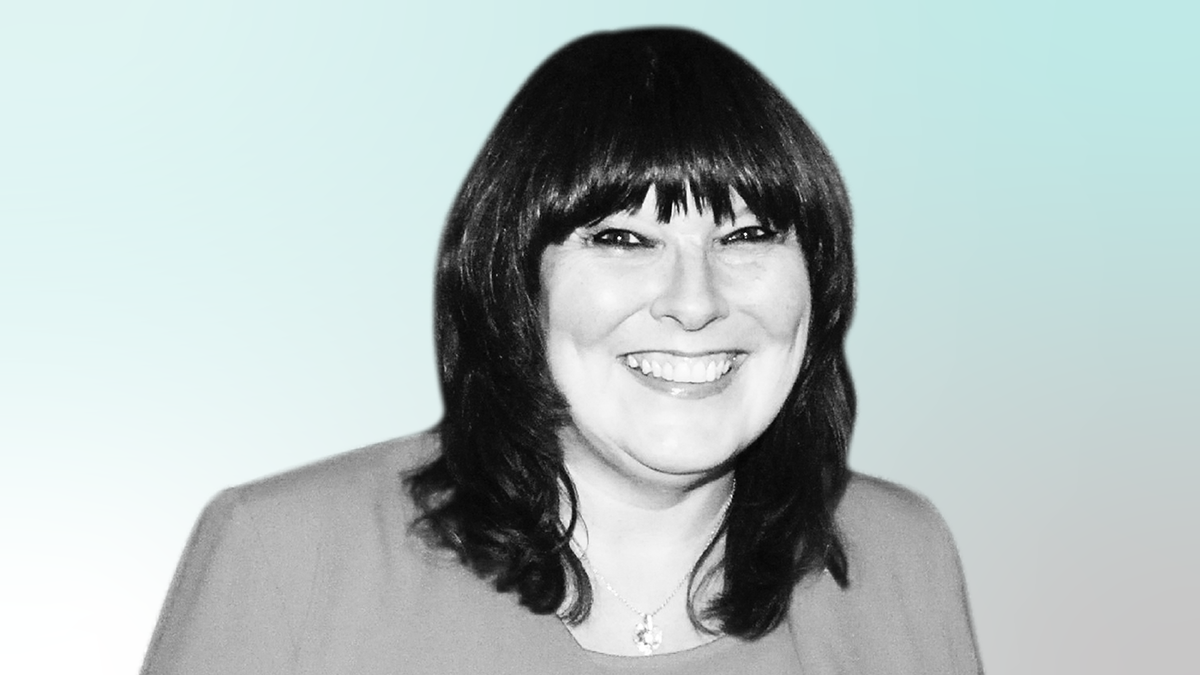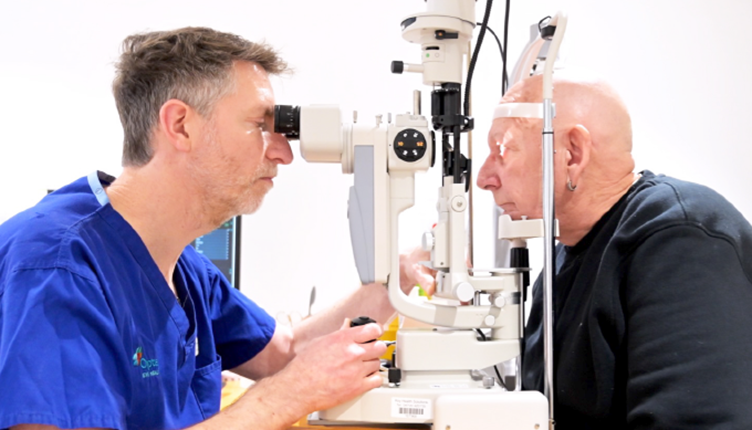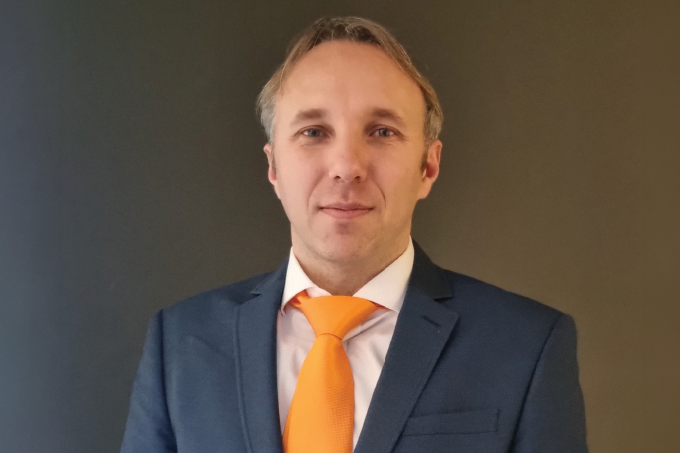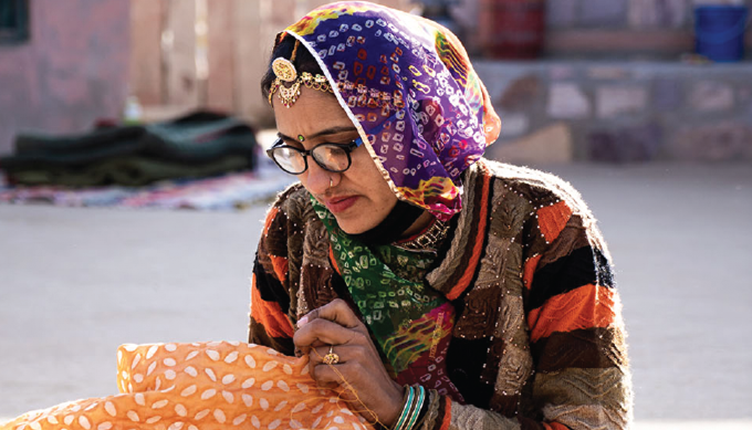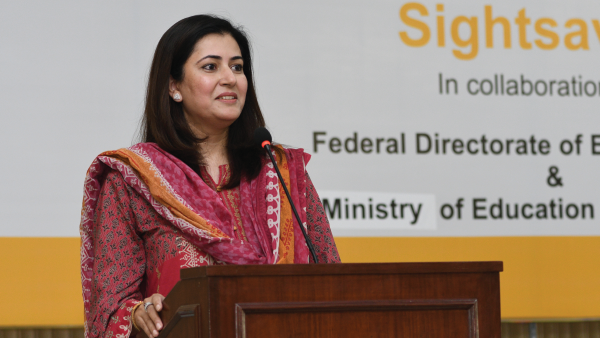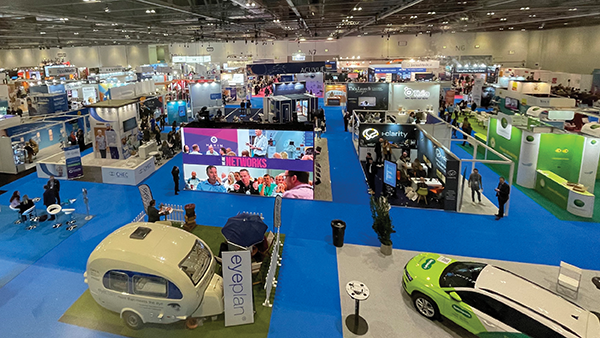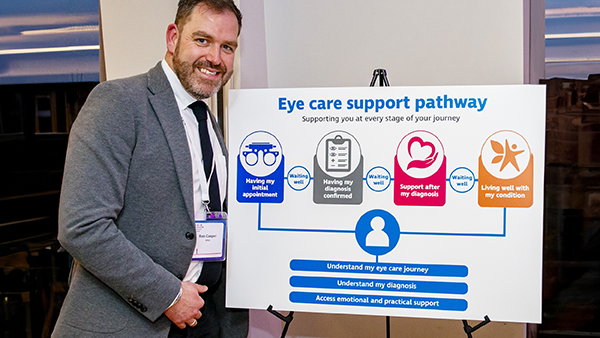You are viewing 1 of your 3 articles before login/registration is required
A Global Focus: Elaine Grisdale, ABDO
ABDO’s Elaine Grisdale on how her international outlook has shaped her stellar career in optics.
Elaine Grisdale has seen her career evolve from a Saturday job at her local optician’s to high profile roles at Essilor International in Paris, lecturing on the global stage, and a long tenure as ABDO’s Head of Professional Services and International Development. Also serving as Director of Development for the International Opticians Association, she continues to embark on new ventures and gain new qualifications. Here, she tells The New Optometrist why her appetite for learning and lecturing is as strong as ever – and why the optics industry should be braced for radical change.
How did you get started in optics?
I became interested in optics when I was a teenager, when I was fitted with contact lenses. It was a revelation to me – how your life could be changed by a pair of contact lenses. I then began working with my optician on Saturday’s and in the holidays while finishing high school.
I had secured a place to do optometry at Cardiff University but I didn’t quite get the grades I needed. Instead, the optician I worked for offered to pay for me to go to Bradford College to complete the dispensing optics course – and I was keen to learn and continue working for him. After qualifying, I worked with the optician for another year and then I went into industry – I joined Essilor and was one of three lens consultants for the UK.
What propelled you into industry so soon after completing the course?
I loved it when the Essilor rep came into the practice to talk about the “new lenses.” I really liked what they did for people – I was a bit geeky about it then as well. I knew the Essilor rep was leaving, so I approached the company for a job; however, they said it “wasn’t a job for a woman” (people said things like that back then…). I persisted and they eventually offered me the job – but for less money than I was earning in practice. I think they were testing my resolve and motivation. I really wanted to do it, so I accepted and it was the best thing I ever did – within three years I was poached by Essilor Paris, which led to all sorts of other opportunities. I’ll add that some of the best years of my life were spent working out of Paris. I spent 12 years there and became fluent in French and learned a great deal about international relations.
Your career has been steeped in presbyopia and its correction…
My first job with Essilor was as a Varilux consultant; Varilux was the first commercially available progressive lens to correct presbyopia. The lenses were a lot more rudimentary than they are today, but Essilor was the world leader in this type of technology and the buzz coming out of the R&D and marketing departments was special. I became fully immersed in the technology – first as an operational marketing manager for Europe, then as a marketing product manager, which meant I was more involved in the development of new products. I then became Essilor’s first global head of professional services for optometry and optics, which meant dealing with global opinion leaders and attending conferences all over the world, but I was still more involved with presbyopia than anything else.
In 1997, I also set up the first European center for presbyopia and the aging eye – Varilux University – which was a training center for subsidiaries offering people three days’ education. We covered various topics related to presbyopia and offered expert talks – in different languages with simultaneous translation – but it also gave attendees the opportunity to bond with eyecare professionals from different countries. It’s still going strong today as the Essilor Academy!
Staying with the global theme, can you talk about the international work you’re doing with ABDO?
When I joined ABDO over 15 years ago, we already had some activities in Malaysia – partnering with a training institution called Axismatics, which allows people in the country to take our Fellowship of British Dispensing Opticians Overseas (FBDO) diploma. The students are trained to our standards; ABDO examiners go out there to oversee the process. We’re also now in India and Australia. And we also have students from many different countries who decide to come to the UK to take our qualifications and then go back to their countries to practice.
One curious aspect of the optics field that I’ve noticed from my international work is how many people call themselves optometrists when, in many cases, they could be referred to as refracting opticians. It’s all really quite confusing. Mainly because we don’t yet have a framework for all the levels of optician scopes of practice. The World Council of Optometry (WCO) has a framework for optometry – levels 1–5. Opticians are classified as level 1 on that framework. So, at the International Opticians Association, we are looking to create a pathway for opticians that will not only be beneficial to the public but will also give our members the chance to upskill.
Speaking of upskilling, why did you decide to embark on a degree in Vision Science?
When I first qualified as a dispensing optician, it wasn’t a degree course. I felt that I’d missed out somewhere along the line. Your appetite for education changes as you get older, and I was inspired watching my daughter get three degrees. Until lockdown, my professional life was spent traveling, being away a lot of the time. During lockdown, of course, I needed something to fill my time, so I started the degree course. (Not that I actually ended up having more time, as I was still busy helping colleagues and supporting members who were furloughed.) I was really pleased to complete the degree in 2022; it (partially!) quenched my thirst for knowledge. I’ve long been interesting in exploring research papers – and then discussing potential impact at conferences – but there is a certain skill to dissecting them efficiently, which is something I learned from the degree course. I specifically opted for degree modules that I could use later in my work, which made it all the more stimulating. In fact, I enjoyed it so much, I’m now studying for a Master’s.
Also in Vision Science?
Actually, it’s focused on dementia. My mother had dementia and I nursed her for 18 months, so I knew the struggles that she had battled to overcome; how being confused could make things like doctors’ appointments difficult, for example. Following her passing, I decided that I wanted to honor her in some way and I started to research more about the condition. Many people with dementia are undiagnosed; they may live on their own and not see many people. And though they might not see the decline in themselves, if we see them regularly as eye care professionals, we might be able to spot the decline and point them to a relevant professional.
I completed a couple of online courses through UCL and started putting some of the knowledge I’d acquired into a tailored presentation on how optical professionals can offer better care for this growing category of patients. Moreover, good vision and, even more, good hearing can keep people with dementia engaged for longer and keep them stimulated. I’ve had the presentation CPD-accredited and now over a third of ABDO members have seen it. I’ve also presented it for organizations around the world, and I’m now engaging with colleagues at the College of Optometrists about the potential to work together in the future. Out of all the presentations I have delivered over 40 years, this one has solicited the most positive – and sometimes emotional – responses.
What lies ahead?
I’d like to continue working with colleagues to raise standards of dispensing around the world. I’d like to make sure that, as a profession, we are equipped for the changing landscape in optics for the next 5–10 years. The optical industry we have now is nothing like the industry we are going to experience in the future. With technology advances and AI developments, the relationship between the practitioner and the consumer is going to change radically. Consumer habits and expectations will change and we will have to evolve with them. Specialization is going to be important; how can we get ready for the next generation? How can we specialize for the worsening epidemic in myopia, for example? We need to focus on raising standards, raising awareness, and finding new and better ways to serve the public.
The New Optometrist Newsletter
Permission Statement
By opting-in, you agree to receive email communications from The New Optometrist. You will stay up-to-date with optometry content, news, events and sponsors information.
You can view our privacy policy here
Most Popular
Sign up to The New Optometrist Updates
Permission Statement
By opting-in, you agree to receive email communications from The New Optometrist. You will stay up-to-date with optometry content, news, events and sponsors information.
You can view our privacy policy here
Sign up to The New Optometrist Updates
Permission Statement
By opting-in, you agree to receive email communications from The New Optometrist. You will stay up-to-date with optometry content, news, events and sponsors information.
You can view our privacy policy here
